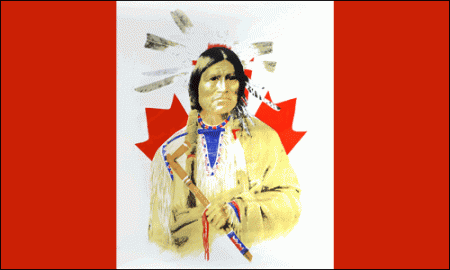STORY about Indigenous posted on July 28, 2015 by Kerry Coast
"Establish Indigenous titles," UN tells Canada
Latest United Nations Committee recommendations to Canada includes establishment of Indigenous title lands.
The Human Rights Committee has just released concluding observations on fifteen “principal matters of concern” with Canada. Five of those concerns pertain to Indigenous Peoples and the violation of their rights in the International Covenant on Civil and Political Rights.
The Committee’s recommendations leave little room for the kind of redirection and side-stepping that Canada’s delegation to the United Nations treaty body performed on July 7th and 8th in Geneva.
The state should find ways and means to establish Indigenous Peoples’ titles to their lands, as well as ensuring Indigenous consent to developments which might impact their titles and treaty rights.
As per its obligations under the Covenant, the state should conduct a national inquiry into the situation of missing and murdered Indigenous women and coordinate police responses across the country to prevent this type of violence, as well as completing investigations and prosecuting the perpetrators, providing reparations to the victims’ families, and addressing the root causes of this violence.
Canada should provide a report on its progress in these two areas within one year.
The state should resolve the gender inequity present in the Indian Act.
Canada is asked to “ensure the effectiveness of measures taken to prevent the excessive use of incarceration” of Indigenous individuals, and “further strengthen its efforts to promote and facilitate access to justice at all levels by indigenous peoples.”
And, under the umbrella of addressing “the precarious situation of Indigenous Peoples,” the Committee recommends “the State party should in consultation with indigenous people: a) implement and reinforce its existing programmes and policies to supply basic needs to indigenous peoples; b) reinforce its policies aimed at promoting the preservation of the languages of indigenous peoples; c) provide family and child care services on reserves with sufficient funding and; d) fully implement the recommendations of the Truth and Reconciliation Commission with regard to the Indian Residential Schools.”
Indigenous Peoples’ rights are taking up larger and larger proportions of the UN treaty bodies’ recommendations to Canada.
In March of this year, the UN Committee for Economic, Social and Cultural Rights put Indigenous Peoples’ rights to “freely dispose of their natural wealth” as the first matter on its List of Issues to the state. That was followed by requests for information on housing, health, physical safety, languages, standards of living and children and family protection among Indigenous Peoples.
In 2012, the UN Committee for the Elimination of Racial Discrimination asked, in its Concluding Observations, for Canada to respond within one year on three issues concerning urgent human rights crises, resulting from racial discrimination, being experienced by Indigenous Peoples. Canada was scheduled for its next review under the Convention for the Elimination of all forms of Racial Discrimination this November – but it has been dropped from the list after asking for more time to prepare.
Canada’s last review under the Convention for the Elimination of Discrimination Against Women led to the direct recommendation that Canada launch a national inquiry into the situation of missing and murdered Indigenous women.
After Canada’s Universal Periodic Review in 2013, two thirds of the statements made to Canada by the other member states of the United Nations were specific to Indigenous rights and violence against Indigenous women and girls. While all those were present in the advance unedited report, many were excluded from the edited final version.
The next treaty body to review Canada’s compliance with international human rights standards will be the Committee on Economic, Social and Cultural Rights, in March of 2016.
The site for the Vancouver local of The Media Co-op has been archived and will no longer be updated. Please visit the main Media Co-op website to learn more about the organization.
